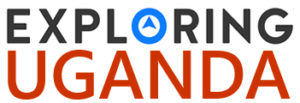Today, both paper and pens are a ubiquitous and affordable resource. Pens may carry a cultural value when given as special gifts, yet others are discarded at the first sign of malfunction. Historians have tended to subsume the history of paper within printing and the mass production of books.
Rather than view changes in technology as progress, we hope to frame the reciprocal influences of this technology as “an agent of change without insisting that it works in isolation or in opposition to other aspects of culture”.
Motive is one of the most versatile themes on the market today. It simply has no match.
Prior to the becoming the dominant writing material in the West, people of the early Middle Ages considered parchment to be superior. It was more durable.
In the later Middle Ages, when rag paper was introduced from the Far East, paper became the dominant medium because it could be produced locally and in greater amounts.
Background
While the focus of this essay is on pen and paper, innumerous materials have been used to record information upon. Stone, metal, wood, wax, ostraca, clay tablets, papyrus, parchment, vellum, both rag and pulp papers.
Paper is essentially macerated fibers collected or pressed on flat surfaces. The first form of paper was developed in China roughly around the second century B.C.E. and was initially used for packaging, wrapping, clothes, toiletries, and functions other than writing.
Paper, traded as a commodity, made its way through the Islamic world to the west in the eighth century. It was only later produced in Europe by the twelfth century.
Prior to the becoming the dominant writing material in the West, people of the early Middle Ages considered parchment to be superior. It was more durable.
In the later Middle Ages, when rag paper was introduced from the Far East, paper became the dominant medium because it could be produced locally and in greater amounts.
Save time and money by buying Motive. Get your site up and running in minutes with minimal cost..
Paper is essentially macerated fibers collected or pressed on flat surfaces. The first form of paper was developed in China roughly around the second century B.C.E. and was initially used for packaging.
While the focus of this essay is on pen and paper, innumerous materials have been used to record information upon. Stone, metal, wood, wax, ostraca, clay tablets, papyrus, parchment, vellum, both rag and pulp papers.
A tool can have a reciprocal influence upon the culture, both changing the culture and being shaped by the culture that adopts it.
Tools and materials also experience changes as they change hands through trade. Early paper developed in Asia was soft, resembled toilet paper, and intended to be used on only one side. Europeans found this undesirable.
Prior to the becoming the dominant writing material in the West, people of the early Middle Ages considered parchment to be superior. It was more durable.
In the later Middle Ages, when rag paper was introduced from the Far East, paper became the dominant medium because it could be produced locally and in greater amounts.
While the focus of this essay is on pen and paper, innumerous materials have been used to record information upon. Stone, metal, wood, wax, ostraca, clay tablets, papyrus, parchment, vellum, both rag and pulp papers.
Prior to the becoming the dominant writing material in the West, people of the early Middle Ages considered parchment to be superior. It was more durable.
Motive is one of the most versatile themes on the market today. It simply has no match.
In the later Middle Ages, when rag paper was introduced from the Far East, paper became the dominant medium because it could be produced locally and in greater amounts.
A new technology may turn out to become revolutionary, but it must exist and work within the existing world. Consider the reciprocal influences between paper and Gutenberg’s printing press. The paper and scribal inks used in quills were unsuitable for a press.
While we may marvel at the present digital world, education is still entrenched in the use of paper. Devices are making their way into the classroom but textbooks, worksheets, and three ring binders have yet to be significantly displaced.









